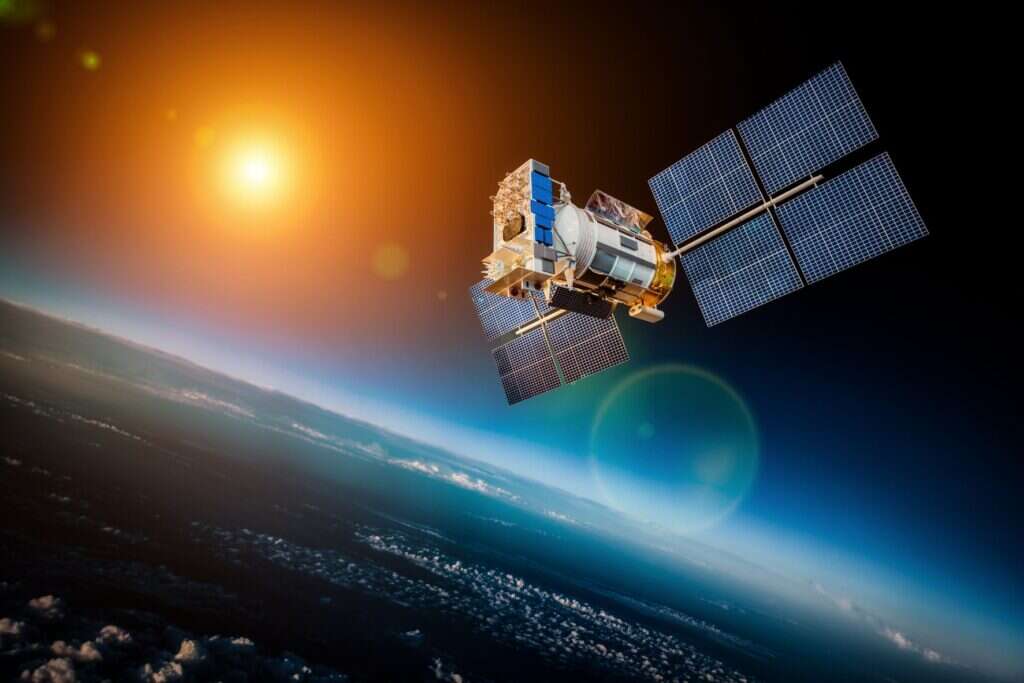
A merger between satellite companies Viasat and Inmarsat has been provisionally approved by UK competition regulator the Competitions Market Authority (CMA). The deal, worth $7.3bn, is not likely to substantially reduce competition in the provision of WiFi to commercial flights, the CMA’s investigation found.

The EU’s antitrust commission is currently engaged in an investigation of the acquisition, which was first announced in November 2021, and could still scupper the deal, but the CMA approval is a major step towards the creation of a new company which could compete with the big players in the satellite internet market.
CMA provisionally agrees to Viasat-Inmarsat merger
The regulator opened an investigation into the deal between Viasat, which is based in the US, and the UK’s Inmarsat last year as it raised concerns over the level of control that both companies already had over the market and whether a merger would unfairly damage competition in the sector.
The CMA has now said that while the two companies are competing to supply in-flight broadband, the sector is sufficiently developed, with the likes of Elon Musk’s Starlink and UK company OneWeb, which last year announced its merger with rival Eutelsat, delivering similar services.
Over the past four months, an independent CMA panel has gathered and scrutinised a wide range of evidence in order to better understand the sector, as well as the potential impact of the deal. This included internal documents from Viasat and Inmarsat, as well as the companies’ competitors, their plans for future expansion, evidence from airlines and the CMA’s own analysis of sector conditions.
Today, the CMA announced that the deal has passed the first phase, leading it on to a Phase Two review. Here the panel considers whether it is more likely than not that a deal will decrease competition, but with a higher threshold than Phase One. Accordingly, some mergers that are referred to Phase Two will ultimately be cleared.
“While Viasat and Inmarsat compete closely, the evidence suggests that the merged company will face significant competition in the coming years, from both emerging players like Starlink and from established players like Intelsat and Panasonic,” said Richard Feasey, chair of the independent inquiry group at the CMA.
“This is an evolving and rapidly expanding sector, in which there have been significant developments even during the course of our four-month investigation. We see this continuing as demand for satellite connectivity increases,” he said.
This has not stopped EU antitrust regulators from raising their own concerns. Last month, the European Commission announced that its concerns stem from Viasat and Inmarsat’s standing as close competitors in Europe, and globally, for the supply of broadband and in-flight connectivity services to commercial airlines.
“At this stage, the Commission is therefore concerned that by acquiring Inmarsat, Viasat may reduce competition in the supply of broadband IFC services to commercial airlines in the EEA and/or globally,” an EU commission spokesperson said.
How will the Viasat-Inmarsat merger work?
Should the deal go ahead, Viasat will pay $850m cash and $3.1bn in shares for its London-based rival, while assuming $3.2bn worth of debt, Tech Monitor has previously reported. The US company already provides satellite-enabled communications and connectivity services to customers in the shipping, aviation and defence sectors. Acquiring Inmarsat will enable it to extend its global reach.
“This is a transformative combination that advances our common ambitions to connect the world,” said Viasat’s executive chairman Mark Dankberg at the time, announcing the planned acquisition. “The unique fusion of teams, technologies and resources provides the ingredients and scale needed for profitable growth through the creation and delivery of innovative broadband and IoT services in new and existing fast-growing segments and geographies,” he said.
Founded in 1979, Inmarsat has established itself as one of the most innovative satellite companies in the world. It was taken private in 2018 when it was brought for $3.4bn by a consortium of private equity and pension funds, which now plan to sell it on to Viasat.






